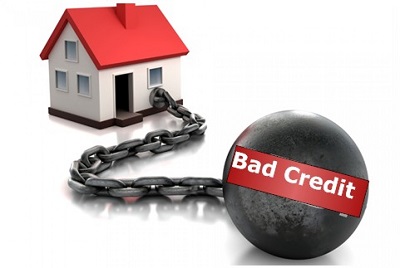
Are you engaging in actions that may hurt your credit score? Credit scores are increasingly becoming the only criterion lenders use to determine creditworthiness. Obvious actions like late payments, charge-offs or bankruptcy damage credit scores but but you could unknowingly hurt your scores with common actions that may otherwise seem unrelated.
Here are some common practices that could hurt credit scores:
Renting a car
Renting a car is a common practice and under normal circumstances would not hurt your credit scores. But for consumers without a major credit card, renting a car can turn into a hard inquiry being put on one or more credit reports. While the practice of running a credit report when consumers rent a car using a debit card is not applied across the board with all car rentals some major companies such as Budget Rent-a-Car have been doing it for several years. One hard inquiries can take as many as 10 points off your credit score — this practice could definitely hurt your credit.
Getting Married
While getting married does not cause your credit history to be combined with your new spouse’s credit history; it does not mean your new spouse’s credit history, if it is bad, won’t affect your ability to get new credit together. When you apply for credit together, a bank or lender will consider both of your credit histories when making a decision to approve or deny. One spouse’s credit history may be stellar but if the other spouse’s credit history is bad, you could be denied credit or if credit is approved, the interest rates and terms will be less favorable. Each of you always will have separate credit histories. But applying for joint credit when one spouse has bad credit can hurt both your credit histories.
Lack of Installment Loans
Diversity in the types of credit you have accounts for 10% of your credit score. FICO refers to it as the “credit mix.” A good mix of credit includes not only revolving credit such as credit cards, but also installment loans such as an auto, mortgage and even personal loan. The credit scoring model likes to see a good credit mix when calculating your credit score. Not having a mix of credit can hurt your score.
Shopping for Insurance
Most insurance companies will do a soft pull on your credit when shopping for insurance rates. Your credit history and scores are used to determine whether you will be extended credit and if so, what rates you will pay. The insurance industry believes there is a correlation between a consumer’s credit score and the likelihood of an insurance claim being filed. Presumably the lower the credit score, the higher the likelihood that person will file an insurance claim. A consumer with a high credit score is less likely to file a claim. Shopping for insurance at several companies can hurt your credit score if hard inquiries are pulled instead of soft inquiries.
Knowing the rules of credit can be difficult for consumers. It is important to stay on top of your credit scores and learn in advance what actions could possibly hurt your scores. Sometimes, doing normal, everyday things might have an unintentional negative impact on a good credit history.
















